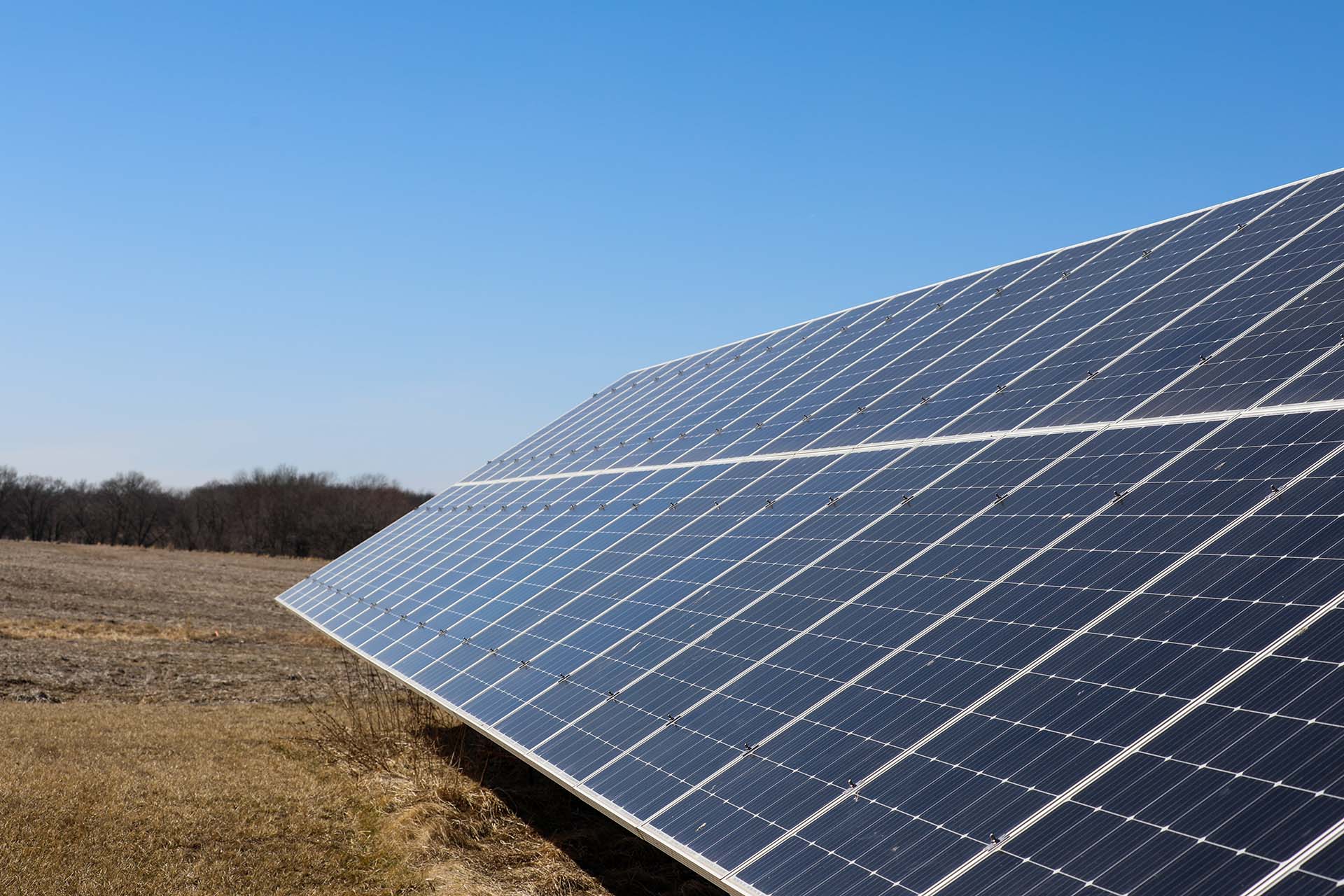Thinking about installing solar?
Are you a homeowner or small business owner considering installing a solar energy system? Ask us first! There are several questions you should ask, the information you need to know, and potential issues you should address with professionals (installers/contractors, insurance agents, and your electric cooperative) before committing to a solar system.
If you have made your home as energy-efficient as possible and now want to install a solar energy system, contact your electric cooperative in the initial planning stages. Conduct thorough research on all aspects of any system before making the investment. Determine what your goal of the system is. For example, do you want to install solar energy because you believe it is the right thing to do? Or are you looking to save money? If you want to save money, carefully examine all the financial considerations first.
When evaluating the potential of installing a solar electric system at a home or business, considerations should include:
-
Solar access: Iowa is fairly good in comparison to other parts of the country. Site specific access depends on installing the system so it is not shaded.
-
Retail cost of residential electricity: Iowa is low in comparison to many other parts of the country. A lower electric rate makes the return on investment length longer than a higher electric rate. Note: CVEC purchases back excess electricity produced by the solar array at the avoided wholesale cost rate.
-
Available incentives: Solar energy systems may qualify for a federal tax credit of 30 percent until 2019, 26 percent in 2020 and 22 percent in 2021.
-
The total cost of the system: The average installed cost of residential solar photovoltaic (PV) is $2.89/watt, or $28,900 for a 10-kilowatt grid tie-in system. In addition, there may be other costs to consider, such as liability, homeowners’ insurance and property taxes. Given the information listed above, evaluate your situation to ensure installing a solar system makes sense financially for you. Talk to your electric cooperative and qualified, reputable solar contractors to help evaluate your feasibility for solar energy.
Finding a contractor may be the hardest part of the renewable process. You will soon realize dealers can be local, state-wide, regional or nationwide. We recommend you start this process like you would if you were choosing a contractor, electrician, doctor or vet – get recommendations! And make sure you perform your own research and due diligence in this process. We have helpful tips and suggested questions from industry leaders.
-
TALK TO YOUR CO-OP! We are proud to help our members who are considering solar, however, we often aren’t contacted until the solar is ready to be turned on. Only then do members realize they missed important steps they were never informed about. We are happy to share our contract and requirements ahead of time.
-
Educate yourself on the topic before you start contacting contractors.
-
Most likely the person you speak with when talking with a solar company is a salesperson, not an installer. Make sure you get every piece of information in writing, including “guarantees”, and communicate this with installers.
-
If geothermal is what you are looking for, understand the industry uses two types of terminology: geothermal and ground source heat pumps (GSHP). One is fancy and fun, the other is the technical term. BEC does offer rebates for certain GSHP systems.
-
Check with neighbors, family or friends who have already installed solar, wind, geothermal, etc. Compare the company’s promise with their real experiences.
-
Check the Better Business Bureau, check with Iowa’s state energy office, the Attorney General’s office, Iowa State Extension, or renewable energy associations. How are the recommended businesses and the “avoid” businesses comparing with your list? This also gives you confirmation they are licensed in the state.
-
Consider calling your insurer and checking how they handle renewables and if they have any concerns or praises about contractors on your list.
-
Narrow your list to at least THREE contractors: check their previous installations, references, get bids and carefully read each of their contracts.
-
Consider having a lawyer review the contracts before signing and find out if any of the contractors are facing lawsuits.
-
Is my home viable for wind, solar, geothermal, etc? Residential solar is best on homes with a south facing roof with no trees between the sun and the panels. Residential wind needs to fit city or county regulations, and perform best with certain consistent wind strengths. Is your home or business within the industry recommendations?
-
If needed, are you willing to cut trees to gain optimal sun?
-
Is the contractor familiar with city or county electric codes and inspection practices? Is the contractor familiar with your utility’s requirements?
-
How much energy will the system produce? Each panel/turbine? How does this compare with your usage?
-
What are the rebates and tax incentives and how do they work?
-
How long is the payback period for your investment?
-
Are there hidden fees? How are payments set up?
-
How long will the system last? What is the annual depreciation?
-
What will the maintenance entail? Can I do it or will I need to hire someone?
-
Check references and professional certifications, credentials, and affiliations for the solar companies you’re considering. Ask the installers what training courses they’ve taken or certifications they’ve earned.
-
Is the contractor responsible for hiring the electrician or is one provided as part of the installation?
-
What are the dangers and safety precautions?
-
How does battery storage work and what are the costs?
-
What happens if you sell your home before you pay off the panels?

